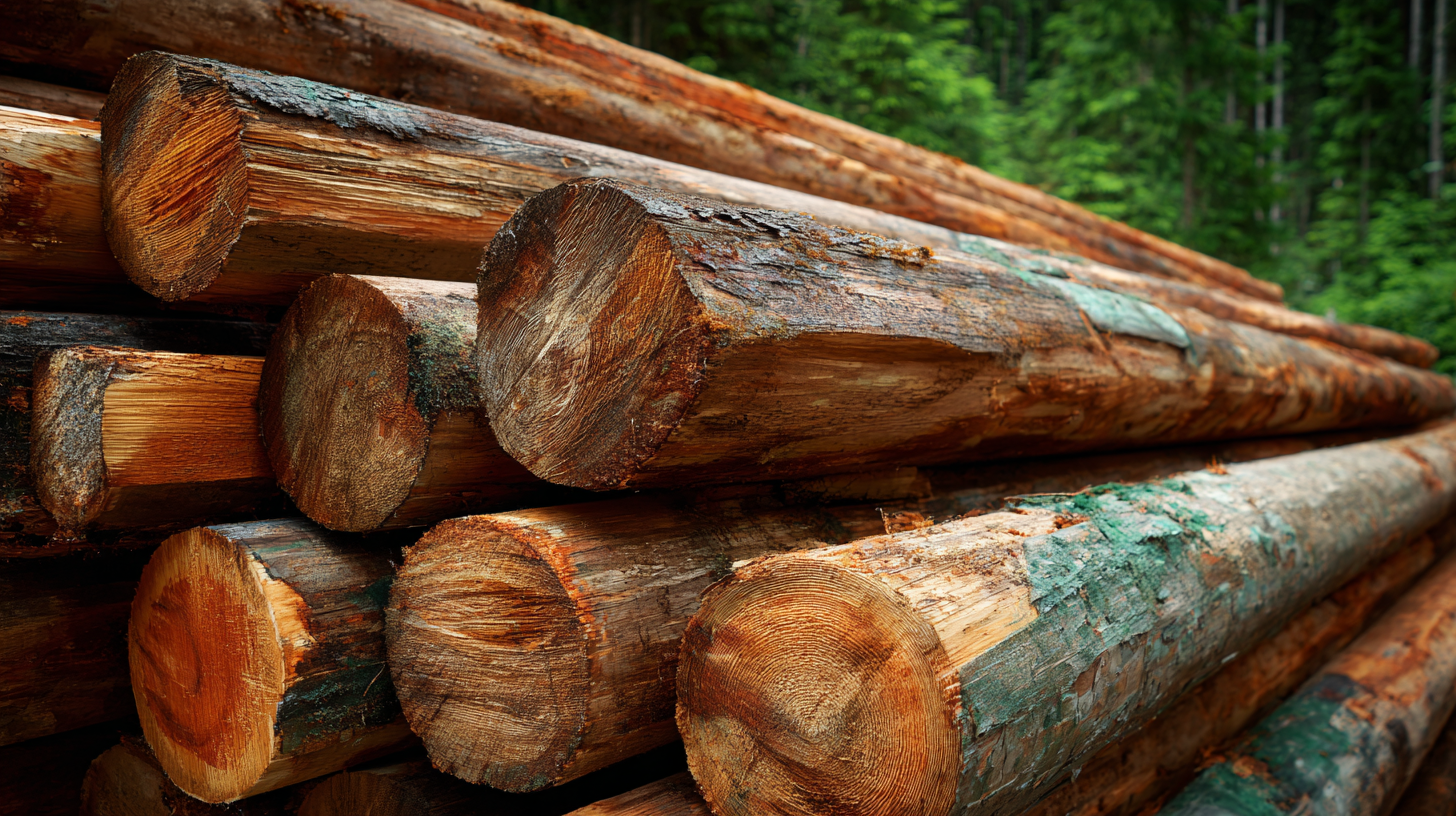In the ever-evolving import and export industry, wood windows have emerged as a prominent sector, showcasing the strength and craftsmanship of Chinese manufacturing. According to a report by the International Trade Centre, wood window exports have seen a remarkable growth rate of 8.5% annually over the past five years, with China being a leading provider in this market. This growth is driven by the increasing global demand for sustainable and aesthetically pleasing building materials, where wood windows are often favored for their durability and energy efficiency. As the industry continues to expand, obtaining recognized certifications becomes essential for manufacturers looking to enhance their credibility and meet international standards. This blog explores the top seven certifications that signify excellence in wood windows, providing insights for businesses aiming to capitalize on the thriving export market and cement their position as leaders in this competitive landscape.

Choosing the right wood windows for the import and export industry presents unique challenges that require careful consideration. With the wide variety of wood types and styles available, identifying the best options that meet both aesthetic and functional requirements can become overwhelming. Furthermore, understanding the international standards and regulations for wood products is crucial. Different countries may have varying certification requirements, which adds another layer of complexity for businesses navigating global markets.
In addition to compliance with regulations, there is the challenge of sourcing high-quality wood that meets sustainability criteria. Many consumers are increasingly concerned about environmental impact, so companies must ensure their windows are sourced from responsibly managed forests. This means not just finding the right materials, but also establishing trustworthy relationships with suppliers. Quality assurance throughout the supply chain is essential, as any defects can affect marketability and brand reputation, underscoring the importance of thorough vetting in the selection process.

In the import and export industry, wood windows face various quality issues that can hinder marketability and compliance with international standards. One common problem is the inconsistency in materials used, which can lead to reduced durability and aesthetic appeal. In many cases, imported wood windows may not meet local standards for thermal performance or resistance to moisture, impacting their usability in certain climates. Addressing these concerns requires a thorough understanding of the relevant certifications and the standards they enforce.
Tips for manufacturers: Ensure that you conduct regular quality checks throughout the production process. This can help identify any deviations from specified materials early on. Additionally, investing in certifications such as the Forest Stewardship Council (FSC) standard can not only enhance credibility but also provide a competitive edge in the market.
Another issue often encountered is a lack of proper labeling and documentation. Without clear labeling, it becomes challenging for importers to verify that the products comply with safety and environmental regulations. This could lead to delays in customs clearance and increased costs.
Tips for exporters: Maintain meticulous records of all certifications and quality checks to present a solid case during inspections. Clear and accurate labeling on products can facilitate smoother transactions and build trust with customers.
This chart illustrates the importance ratings of the top 7 certifications essential in the import and export industry for wood windows. Each certification is rated on a scale from 1 to 10 based on its perceived importance in addressing common quality issues faced in wood window certifications.
Navigating the regulatory landscape is crucial for businesses involved in the import and export of wood windows. International standards ensure that products meet safety, environmental, and quality benchmarks, which can vary significantly from one region to another. Understanding these regulations is essential not only for compliance but also for gaining a competitive edge in the global market. Certifications such as the Forest Stewardship Council (FSC) and the American National Standards Institute (ANSI) play a pivotal role in affirming that wood products are sourced responsibly and adhere to stringent quality measures.
In addition to certification bodies, companies must stay informed about regional regulations regarding emissions, durability, and sustainability. For instance, the European Union's regulations on timber products require importers to demonstrate due diligence in their supply chains. Adhering to these international standards not only mitigates legal risks but also builds consumer trust. As the demand for eco-friendly and high-quality wooden products increases, navigating these regulations effectively allows companies to thrive in the competitive landscape of the wood window industry.
In today's competitive import and export industry, sourcing certified wood window suppliers is crucial for businesses aiming to ensure quality and sustainability. According to a report by the Forest Stewardship Council (FSC), over 80% of consumers prefer products from companies committed to environmental responsibility. Therefore, focusing on certified supplies not only meets consumer demand but also enhances brand reputation.

When searching for suppliers, consider certifications such as Programme for the Endorsement of Forest Certification (PEFC) or FSC certification. These labels guarantee that the wood is sourced from responsibly managed forests, thereby supporting ecological balance. It's vital to verify documentation and engage with suppliers who demonstrate transparency in their sourcing practices.
Tips for sourcing: Always request product certifications upfront and ensure they are current. Networking with industry professionals can provide insights into reliable suppliers. Additionally, visiting suppliers' production sites can help you assess their practices and commitment to sustainability, strengthening business relationships and quality assurance.
In the import and export industry for wood windows, the significance of certifications cannot be overstated. They play a crucial role in influencing market demand and pricing strategies. According to recent findings, products associated with socially and environmentally responsible certifications experience a measurable increase in consumer sales. A joint study by market intelligence firms indicates that items boasting sustainability credentials see growth rates that outpace those of their non-certified counterparts, underscoring the consumer shift toward more responsible purchasing decisions.
Furthermore, sustainability certifications are not only driving consumer interest but are also enhancing overall market pricing. For instance, sustainably certified building materials, including wood windows, can attract premium pricing due to their perceived added value. It has been reported that green buildings can achieve a capital value premium greater than 20%, illustrating that buyers are willing to pay more for products that align with their values. This trend reflects a broader willingness among consumers to invest in certified products, reinforcing the market's focus on sustainability as a key driver of demand.
| Certification Name | Certification Body | Impact on Market Demand | Effect on Pricing | Geographical Relevance |
|---|---|---|---|---|
| FSC Certification | Forest Stewardship Council | High | Premium Pricing | Global |
| PEFC Certification | Programme for the Endorsement of Forest Certification | Moderate | Standard Pricing | Europe, North America |
| Energy Star | U.S. Environmental Protection Agency | High | Increased Value | North America |
| ISO 14001 | International Organization for Standardization | Moderate | Slight Increase | Global |
| Windows Energy Rating | Various National Bodies | High | Premium Pricing | Europe |
| UKCA Mark | UK Government | Moderate | Standard Pricing | United Kingdom |
| CE Marking | European Union | High | Variable Pricing | European Union |




